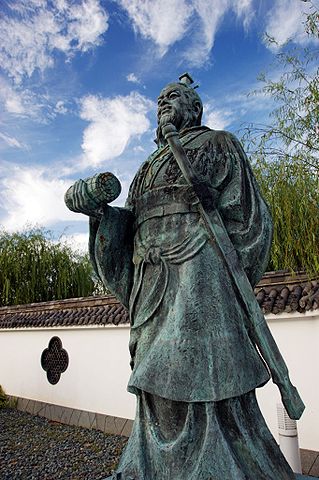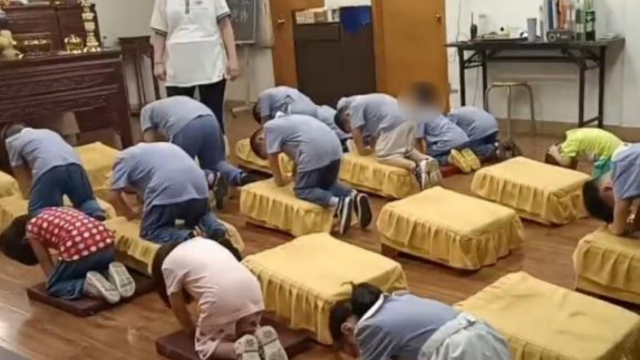Old Chinese classics on how to deceive and manipulate enemies are studied and put into practice by the CCP “Wolf Warrior” diplomats and politicians.
by Ruth Ingram

Naivety, ignorance, and passivity have been the hallmarks of the West in its dealings with China over the centuries, and this must stop, according to experts who came together recently to build a strategy for future dealings with the superpower.
Citing Sun Tzu, the renowned Chinese general of the 5th century BC, whose duplicitous war strategies have underpinned not only modern Chinese warfare, but every aspect of Chinese culture, Rahima Mahmut, Uyghur exile and UK representative for the World Uyghur Congress, speaking at the launch of the UK’s China Research Group (CRG) latest paper, “Defending Democracy in a New World,” warns Western democracies that they should wise up to the “mentality and strategy” of the CCP. She quoted the Chinese saying, “if you know your enemy like yourself, you will win a war of 100 years.”
Sun Tzu’s thoughts and philosophy, together with those of the ancient Chinese collection of ruses and strategies for dealing with conflict known as the “36 Stratagems,” have permeated Chinese culture in politics, negotiations, and business behavior since time immemorial. The Western democratic world mindset and that of the CCP could not be further apart, she advised.
“There can never be too much deception in war,” Sun Tzu said, she observed, adding that the “36 Stratagems” were each “based on trickery and deceit,” and recommended that politicians hoping to deal with China should read and study them. She quoted Chinese scholar Rosalie Tung as saying that deception was traditionally an accepted part of Asian business practices. “One of twelve principles guiding the Asian business practices is engaging in deception to gain a strategic advantage,” she said.
“Only when you understand your rival, their very deep mentality and their strategies, can you have a better strategy to counter it,” Rahima concluded.
The CRG report in essence aims to provide a “toolkit of policy options” for responding to a more assertive Chinese Communist Party, and to spark discussion about some of the different actions liberal democracies such as Britain can take, either individually or collectively, in order to encourage the Chinese government to bow to the rules-based international order.
The report urges democratic nations to get off their back foot when dealing with China, and to robustly tackle infringements on human rights and international law. There should be incentives and deterrents in place, which “should include substantive repercussions for incursions on democracy and human rights.” Countering violations of international universal human rights, in particular in Hong Kong and Xinjiang, should not be shied away from.
“Democratic nations have not been proactive in facing this challenge to the rules-based international order,” regretted the report, which has come up with a range of proposals across the board for tackling financial services, international law, trade, supply chains, infrastructure investment and information systems in the face of China’s growing economic and political power.
It moots a raft of ideas, key to which would be the formation of a D10 coalition of democracies to counterbalance and challenge Chinese influence. They include sanctions against human rights violators, measures put into place to ensure supply chains are free from slave or child labor from political prisoners and persecuted ethnic minorities in China, banning of exports from democratic countries such as the UK to China of goods and services that are likely to be used for mass surveillance and human rights violations by the CCP, and the implementation of more stringent checks on the purchase of Chinese hardware and increased monitoring of companies that could have links with the Chinese government or military.
Alexander Downer, Australia’s foreign minister from 1996–2007, whose own government is currently bearing the brunt of CCP ire over being called out over its human rights abuses, addressing the launch said that China’s “nineteenth century diplomacy” over the past two years was regrettable, but was having the positive effect of driving Western countries together. He urged them to unite, understand China’s strategy and free themselves from unhealthy reliance on the superpower.
“The West must stand by its values,” he said, pressing for joint declarations on Hong Kong and other human rights issues, to shame China into reconsidering its position. He said the so-called “Golden Era” of dealings with China was over. and the time for business as usual and simply seeing it as a “convenient market to sell Landrovers,” should stop.
Nathan Law. one of Hong Kong’s most prominent young democracy activists, now exiled to Britain, pointed out the CCP’s expertise at divide and conquer. and penchant for seeking weak spots in alliances. In the light of this, the West must “enhance collaboration,” he begged. “We need engagement but not appeasement.”
The CCP has the helm of every one of its institutions and major companies dealing with the West, Law said. “Its control is overwhelming and dominates everything,” he pointed out, urging the world to wake up to its tactics and the end game which is supremacy. He warned that the CCP worms its way insidiously into infrastructures, into business and education. “China’s United Front is trying to silence debate,” he advised.
The launch of the CRG report comes ironically on the back of the China Daily’s online push in mid-November, to promote the very “36 Stratagems” referred to by Rahima Mahmut, in video format, using “Kung Fu’s soft power” to woo its Western audience. “Conceal a dagger with a smile” and “kill with a borrowed knife,” “steal the beams and timbers and replace them with rotten timber,” and “prepare to advance down a path while taking another” are a taster of some of the tactics awaiting the unsuspecting concealed in the CCP arsenal.
“Those interested in engaging with China—for business in particular—would do well to take heed of the 36 Stratagems’ many messages, both overt and hidden,” advises Olex Nykytyuk, project manager at Intralink, in a Linkedin seminar. “Considering the reverence with which Chinese people treat their traditional writings (proverbs, quotes, legends, allegories, as well as literary works), he said, and how avidly they read them, and how extensively they are referenced in common language, it is worth getting to grips with them. Who knows what advantages such knowledge could bring?”
Davia Temin, writing about leadership in a Forbes piece in 2017, said the “‘36 Stratagems’ are so famous in China that they permeate the culture: children are taught them early, and they are referred to in nursery rhymes and soap operas, songs and storytelling. Some have said that they are part of the Chinese “collective unconscious.” But that is indeed quite troubling, given their content,” she says tellingly, adding ominously, “this compelling ancient leadership advice is exactly the kind of information we need to be aware of, think about, and plan for, whether we embrace it or not. Because our adversaries surely are doing so.”
Rahima has welcomed the CRG report, and hopes it will be a global spur to action. “For years nobody stood up for us. The Obama administration: nothing. The David Cameron government: nothing. Angela Merkel: nothing. Theresa May: nothing,” she lamented. But the Trump administration, she said, gave Uyghurs hope. “Under Trump, the secretary of state, Mike Pompeo, pursued an aggressive line on China, which gave us hope. For the first time, our oppressors were being sanctioned, and real action was being taken to prevent companies sourcing goods made with Uighur slave labor.” She hopes this will continue under Biden.
In an opinion piece in The Independent newspaper last week, citing the leaked high-level Chinese government documents last year that quoted Xi Jinping himself as saying Uyghurs should be shown “absolutely no mercy”. “China’s state media is even more explicit about what should be done to the Uyghur,” Rahima said, calling upon the government to “break their lineage, break their roots, break their connections and break their origins”. She pointed to The Washington Post, which concluded in an editorial: “It’s hard to read that as anything other than a declaration of genocidal intent.”
But, says Rahima starkly, “it’s a matter of severe trauma for us that the international community is unwilling to act upon this, despite such clear evidence that the CCP wants to destroy our way of life.”
Source: Bitter Winter












